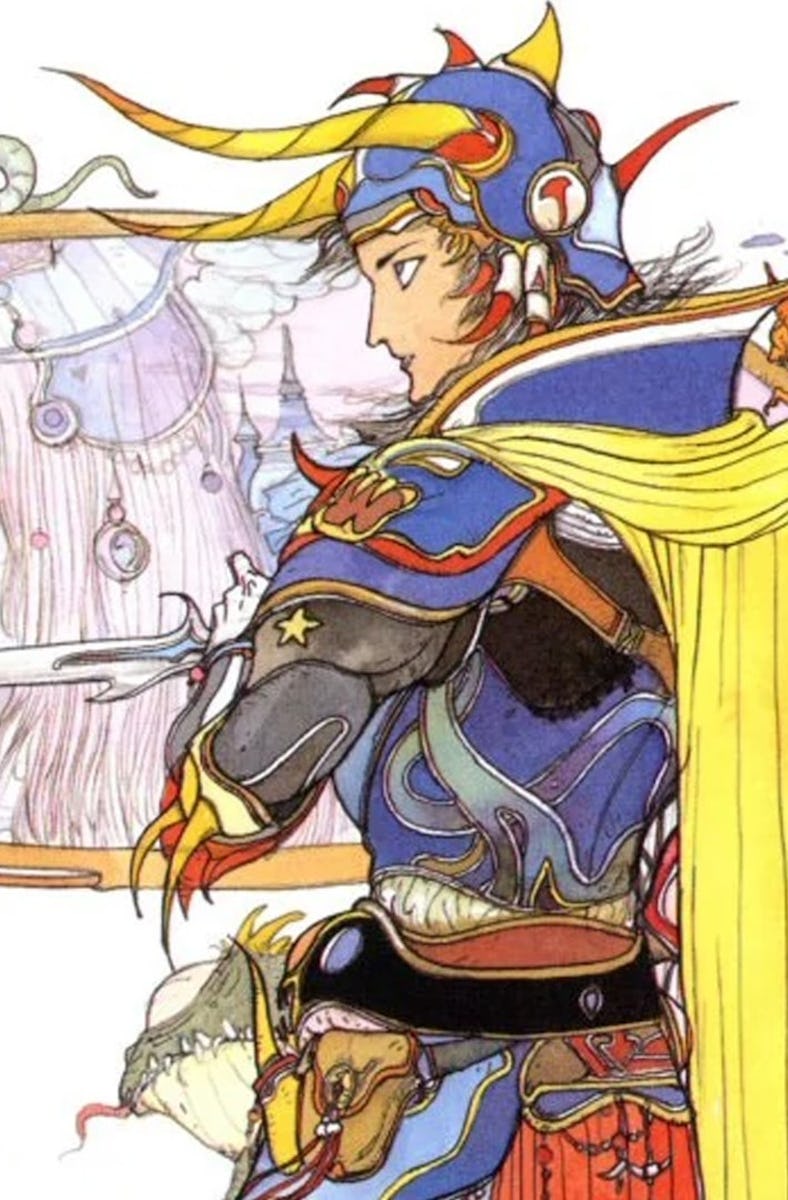Nintendo Switch Is the Best Way to Play the Classic Final Fantasy Games
The Golden Age.

The first six Final Fantasy games are some of the most important RPGs ever made, and titles any fan of the genre should experience at least once. Square Enix’s Final Fantasy Pixel Remaster collection has already been well-received on PC and mobile. And now that the games are out on Nintendo Switch, the portability combined with some key new features help make this the definitive way to play these classics.
You can buy the Pixel Remasters as one big bundle for $74.99, or individually for $17.99 each. So if you want to pick and choose which titles, you can do so. The important point, however, is that all six games come packed with new features and options that currently aren’t available on PC and mobile, although Square Enix has confirmed it's working on adding them at some point.
To get the easy stuff out of the way, the two most obvious new features are the ability to swap between the rearranged soundtrack and the classic soundtracks. On top of that, Square Enix has added a new “Classic” font option that’s visually a huge improvement, and turned out to be much more readable, even though it doesn’t completely fix the issue.
One of the major complaints with the Pixel Remasters was the hard-to-read modern font, and these new versions take steps to adress that.
However, the really important addition is boost options that can integrally change your experience. These are essentially options that Bravely Default pioneered back in 2012, letting you boost the amount of experience and gold you can earn, or even turn off random encounters entirely.
This is a tremendous change for these old RPGs that, more often than not, feature some sections that can get incredibly tedious or grindy. Being able to turn off random encounters at any time hugely helps the flow of each game, and could be the difference between someone losing steam halfway through or beating a game.
For example, Final Fantasy III's final dungeons are pretty notorious for being long and brutal making you trudge through the Eureka, Crystal Tower, and the Dark World back-to-back. Being able to modulate the encounters and experience you get can make this roughly six-hour section much more palatable, and honestly, these options feel like something that should have been in the Pixel Remasters from the very start.
Interestingly, the experience boost feature works a bit differently based on the game you’re playing. Final Fantasy II benefits the most from this due to its strange experience system that has you leveling up stats or abilities as you use them in battle. The boosts make it much easier to level up your characters how you want, essentially helping what is arguably Final Fantasy II’s biggest flaw. Equally, Final Fantasy V system boosts the ABP for jobs while Final Fantasy VI gets a boost to the AP for magic and Espers.
The Pixel Remasters provide a modern touch to each game’s visuals, while still maintaining the unique identity of them all.
As beloved as these games are they have started to show their age, and options like these can help players that may not have previous experience and nostalgia as motivation. Detailed customization is what really helps these classic RPGs stand the test of time.
Everything about the Pixel Remasters feels like these experiences are tailor-made for the Nintendo Switch. The system’s portability still remains novel, even after the release of the Steam Deck, and the new additions really allow you to customize the experiences to your own needs and wants.
For the most part, these games run well on Switch. Battles play out without any issue, but during exploration, you might experience the occasional stutter. If you happen to have a Switch OLED, however, the improved screen really gives the pixel art and colors that extra pop; it’s a noticeable difference over the standard models.
The Final Fantasy Pixel Remasters still aren’t perfect, and I still find myself a little disappointed that they lack all the bonus content from different versions, like the extra dungeons featured in Final Fantasy I & II: Dawn of Souls.
All that being said, there’s honestly no version of these games I’d rather play than the Nintendo Switch one. Between the core experience of each game, the new changes, and the lengthy gallery and bestiary option, there’s no better way to immerse yourself in the early days of Final Fantasy.
This article was originally published on